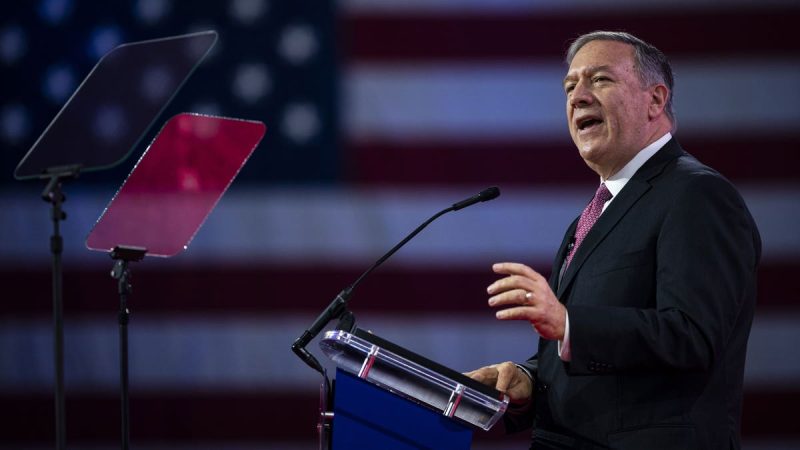US Secretary of State Mike Pompeo has lambasted Biden administration officials who signed a dissent letter, calling it “the latest example of the moral bankruptcy of today’s Washington”.
The letter in question was signed by more than 200 US State Department officials condemning the Biden administration’s stance on the ongoing conflict between Israel and Hamas. The letter argued that US policy was not doing enough to protect Palestinian civilians and their civil liberties.
Pompeo argued that the signatories of the letter were unrepresentative of the US State Department as a whole and were taking a “maliciously false narrative” about the conflict. He compared the signatories to bureaucrats who worked under the Obama and Trump administrations and questioned the signatories’ knowledge of US foreign policy.
Pompeo further accused the signatories of attempting to undermine US-Israel relations by attempting to impose their own moral judgement on US foreign policy. He argued that such a view of foreign policy was un situated and flawed and would not further US interests.
He closed his remarks by accusing the signatories of having a “morally broken compass” and their views having nothing to do with the “just and stable future” of Israelis and Palestinians.
The letter and Pompeo’s response have polarized opinion amongst foreign policy experts and in the Biden administration itself.
Experts have argued that the signatories of the letter have raised salient issues that needed to be addressed in US foreign policy. For instance, the signatories argued that US policy should take into account the plight of Palestinian civilians and their civil liberties, which had been largely ignored in the past.
On the other hand, many agreed with Pompeo in that the letter was an attempt to undermine US-Israel relations, a view shared by many Republican officials in Congress.
Whatever one’s opinion, one thing is certain: the latest developments in the conflict between Israel and Hamas have brought to public attention the debates taking place inside the US State Department and Washington’s foreign policy circles. It is not often that these debates are brought to the public domain, and it sheds much needed light on the US approach to international relations.

